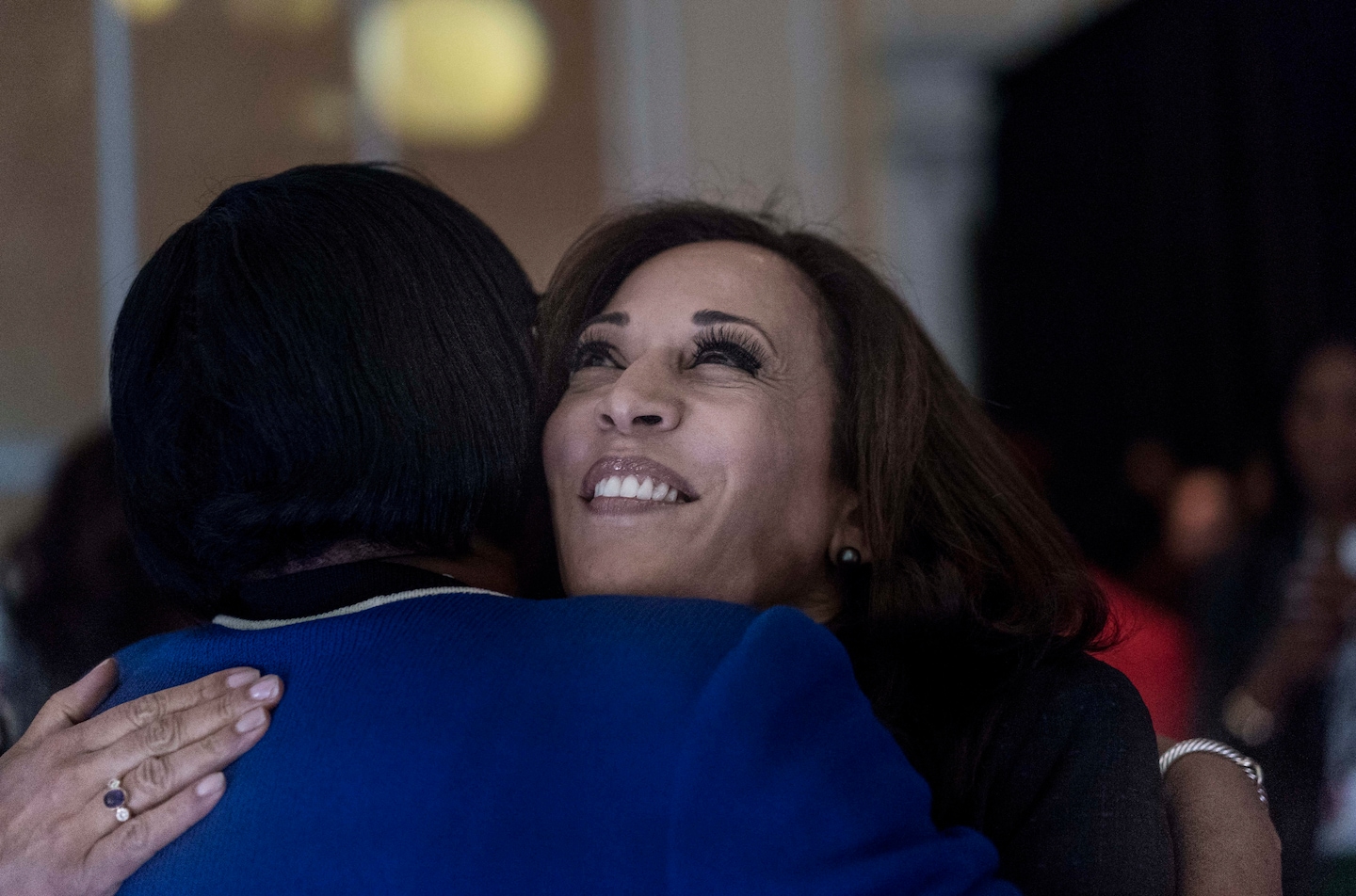Black women in politics are no longer a ‘first.’ They are a force.

Simply put, Black women are no longer a “first” in politics — they are a force.
Harris, the daughter of Jamaican and Indian immigrants, was one of 11 finalists to be Joe Biden’s running mate, six of whom identify as Black. These contenders were neither tokens nor novelties; their experience, accomplishments and capacity to lead qualified them for Biden’s short list. The breadth of that field is a remarkable indicator of how quickly Black women have advanced in politics.
Brooklyn’s Shirley Chisholm was on her way to being a first when she joined the New York State Assembly in 1965, the year the Voting Rights Act gave teeth to the promise of the 15th Amendment, which prohibited voter discrimination based on race, and the 19th Amendment, which prohibited voter discrimination based on gender. A wave of Black women voters was unleashed.
Chisholm’s slogan, “Unbought and unbossed,” signaled that Black women would enter politics on their own terms. By 1968, Chisholm had become the first Black woman to win a seat in Congress. In 1972, she ran for president, aiming to break ground. “I am not the candidate of Black America, although I am Black and proud,” she said. “I am not the candidate of the women’s movement of this country, although I am a woman and I’m equally proud of that. … I am the candidate of the people of America. And my presence before you now symbolizes a new era in American political history.”
Next came Barbara Jordan, who in 1972 campaigned in the heart of what had been the Jim Crow South. Black women organized in her hometown of Houston, raising funds and turning out voters. Jordan became the first woman — Black or White — to represent Texas in Congress in her own right.
When she took the House floor to open the impeachment proceedings against President Richard Nixon, Jordan invoked the Constitution’s preamble to explain the significance of her presence. “When that document was completed on the 17th of September in 1787, I was not included in that ‘We, the people,’ ” Jordan said. “…But through the process of amendment, interpretation and court decision, I have finally been included.”
In just one generation came many more firsts. At the state level in the 1990s, Black women were elected attorney general in Indiana, secretary of state in Colorado and treasurer in Connecticut. In D.C., Sharon Pratt Kelly became the first Black woman mayor of a major city. Thirteen Black women were elected to the U.S. House. In 1993, Carol Moseley Braun became the first Black woman elected to the U.S. Senate. In 2004, she ran, unsuccessfully, for president.
Some offices — such as governorships — still elude Black women, but there has been a clear shift: No longer are they running simply to open doors for others. Black women have won a multitude of offices from county to federal levels in recent decades, building power along the way.
In 2008, Black women flexed their political muscle. Beyond the headlines of the Democratic primary contest that pitted a Black man against a White woman, there were Black women with diverse careers and backgrounds — among them Michelle Obama, Oprah Winfrey, politico Donna Brazile and political-scientist-turned-journalist Melissa Harris-Perry — using their influence to turn out admirers and transform them into voters.
In the blogosphere and elsewhere, Black women pushed back against the expectation that they fit into a politics dissected between men and women, Black and White. Michelle Obama’s convention declaration — “I stand here today at the cross currents of that history” — resonated among women who felt their political identities had been forged in the intersections of race and gender, and in the fight against distinct discrimination.
For decades, Black women made their presence known as a collective. They voted at a higher rate than any other racial or gender group in 2012, and 96 percent voted to reelect President Barack Obama. In 2016, 94 percent of Black women voted for Hillary Clinton, while White women split between Clinton and Donald Trump. In Mississippi’s 2017 U.S. Senate election, fully 98 percent of the Black women who voted cast ballots for Doug Jones.
When, many have wondered, would this voting power translate to power in high office? November may tell. In just over half a century of vying for political power, Black women have moved beyond firsts. Harris is not merely a barrier-breaker on the ballot; she’s part of a generation of Black women leaders who are changing politics — and our collective future.
Read more:






